There is no justification for present existence other than its expansion into an indefinitely open future
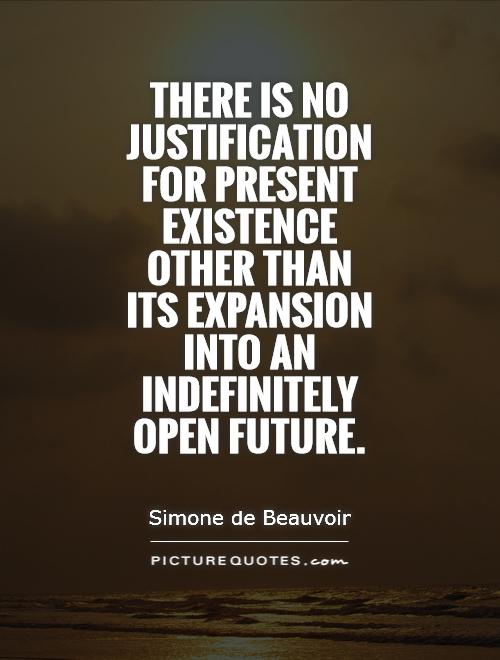
There is no justification for present existence other than its expansion into an indefinitely open future
Simone de Beauvoir, a prominent existentialist philosopher, feminist theorist, and writer, believed in the idea that there is no justification for present existence other than its expansion into an indefinitely open future. This concept is central to her philosophy and can be seen throughout her works, particularly in her seminal work, "The Second Sex."De Beauvoir argued that human existence is inherently meaningless and absurd. She rejected the idea of a predetermined purpose or meaning to life, instead asserting that individuals must create their own meaning through their actions and choices. In this sense, the present existence of an individual is only justified by its potential for growth and development into the future.
For de Beauvoir, the future represents a realm of possibility and freedom. It is through our choices and actions in the present that we shape our future and define ourselves. By embracing the uncertainty and openness of the future, individuals can transcend the limitations of their present circumstances and strive towards self-realization and fulfillment.
De Beauvoir's emphasis on the expansion into an indefinitely open future also reflects her commitment to existentialist principles of freedom and responsibility. She believed that individuals are fundamentally free to make choices and create their own values, but also that they are responsible for the consequences of those choices. By embracing the future as a space of possibility and potential, individuals can take ownership of their lives and actively shape their destinies.
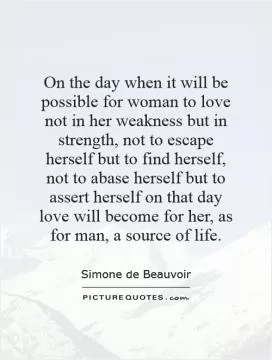



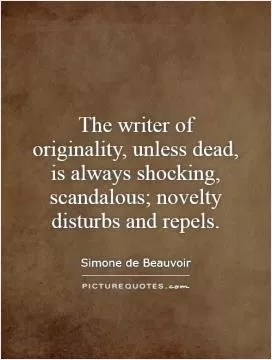
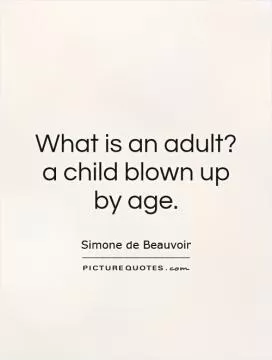

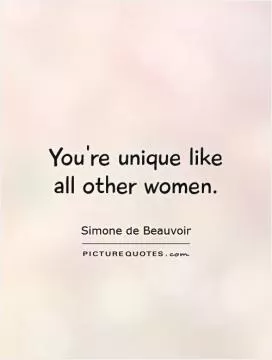

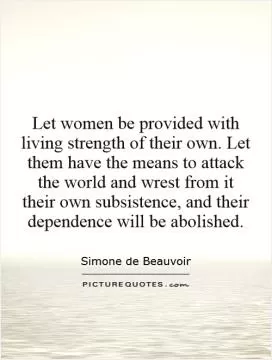


 Friendship Quotes
Friendship Quotes Love Quotes
Love Quotes Life Quotes
Life Quotes Funny Quotes
Funny Quotes Motivational Quotes
Motivational Quotes Inspirational Quotes
Inspirational Quotes